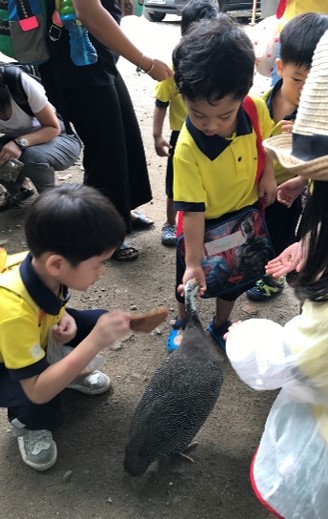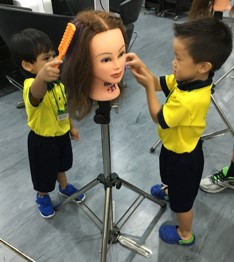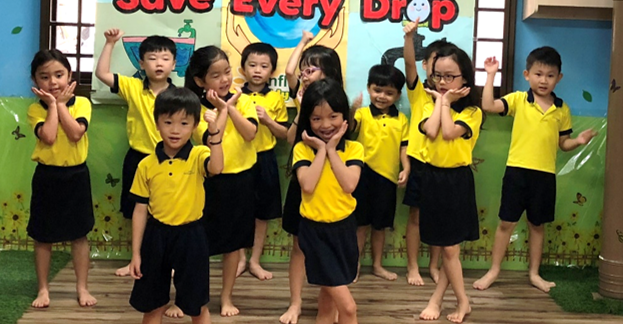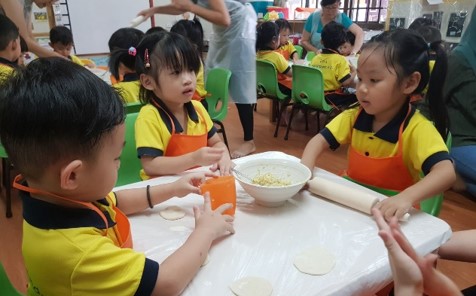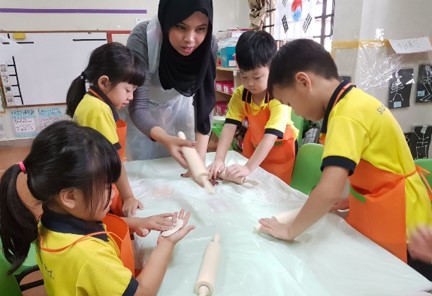
Our Curriculum
Multiple Intelligences Approach
 |
The theory of multiple intelligences was developed by Dr. Howard Gardner, professor of education at Harvard University. It suggests that the traditional notion of intelligence, based on I.Q. testing, is far too limited. Instead, Dr. Gardner proposes eight different intelligences to account for a broader range of human potential in children and adults. These intelligences are: |
Linguistic Intelligence (Word Smart)
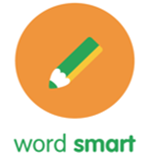 |
Children with verbal-linguistic intelligence display good languages ability. They are typically good at reading, writing and telling stories. |
Logical-Mathematical intelligence (Number Smart)
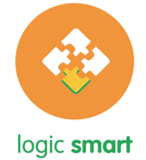 |
Children who are strong in logical-mathematical intelligence are able to think conceptually about numbers, relationships, and patterns. They are good at reasoning, recognizing patterns, and logically analysing problems. |
Spatial Intelligence (Picture Smart)
 |
Children with high spatial intelligence are good at visualizing things. They have a good sense of directions. Learning through videos and pictures excite them. |
Kinesthetic Intelligence (Body Smart)
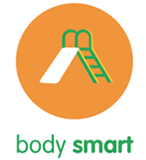 |
Those who have high kinesthetic intelligence are good at body movement, performing actions, and physical control. They tend to have excellent hand-eye coordination and dexterity. They made good dancer, sportsman or actor. |
Musical Intelligence (Music Smart)
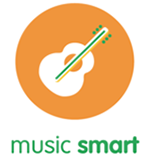 |
Children with strong musical intelligence are good with music, rhythms, and sounds. They learn best through music and are good at performing, singing or composing. |
Interpersonal Intelligence (People Smart)
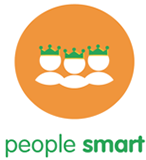 |
Children who have strong interpersonal intelligence are good at understanding, relating and interacting with other people. |
Intrapersonal Intelligence (Self Smart)
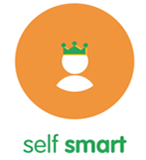 |
Children have excellent sense of self-awareness of their own emotional states, feelings, and motivations. They are good at self-reflection and assessing their personal strengths. |
Naturalist Intelligence (Nature Smart)
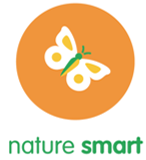 |
Children who are high in this type of intelligence appreciate nature. They enjoyed activities that allowed them to explore the environment. |
Inspired by Dr Howard Gardner Multiple Intelligence (MI) theory, Sunflower Kiddy Star Preschool adopts Multiple Intelligence Approach into our thematic curriculum. It provides eight different potential pathways to learning, leveraging and building on the children’s innate strengths and abilities. We believe every child is unique and has potential to do great things.
Our curriculum is thoughtfully designed for children from 18 months to 6 years old engaging children with eight MI activities to develop children holistically. It aims to develop our children in knowledge acquisition, academic and life skills, character development, school readiness skills and lifelong learning attitude.
Bilingual Programme
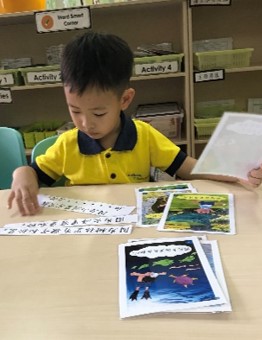
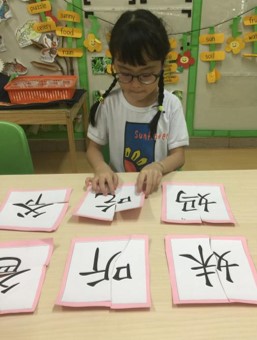 |
Sunflower Kiddy Star Preschool offers a dual language programme. The Chinese Language programme is delivered to all classes on a daily basis and children can interact and communicate with the Chinese Teachers throughout the day to ensure the children have significant exposure to the language. The Chinese Language Curriculum is holistic based on our Multiple Intelligence approach that integrates various learning experiences aimed at stimulating the children’s love and interest in Chinese language as well as developing children’s knowledge and skills in listening, speaking, reading, penmanship, writing skills and spelling. Hanyu Pinyin programme is introduced at Kindergarten Two Level to ease K2 children transition to Primary One. In addition, the children are taught the values of Di Zi Gui character education that emphasises the basic requisites for being a good person and guidelines for living in harmony with others. |
Festival Celebrations
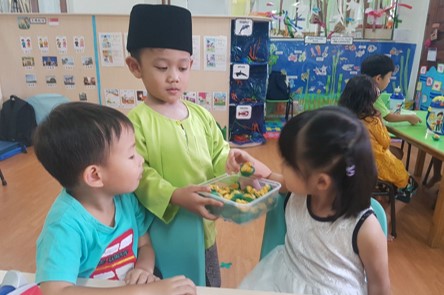 |
The school organises major festival celebrations for the children. Festivals are an important part of our life and it creates an environment of cultural harmony and teaches children to embrace one another in a bond of love. Through our festival celebration programme, children are exposed to different cultural and national diversity around the world. |

